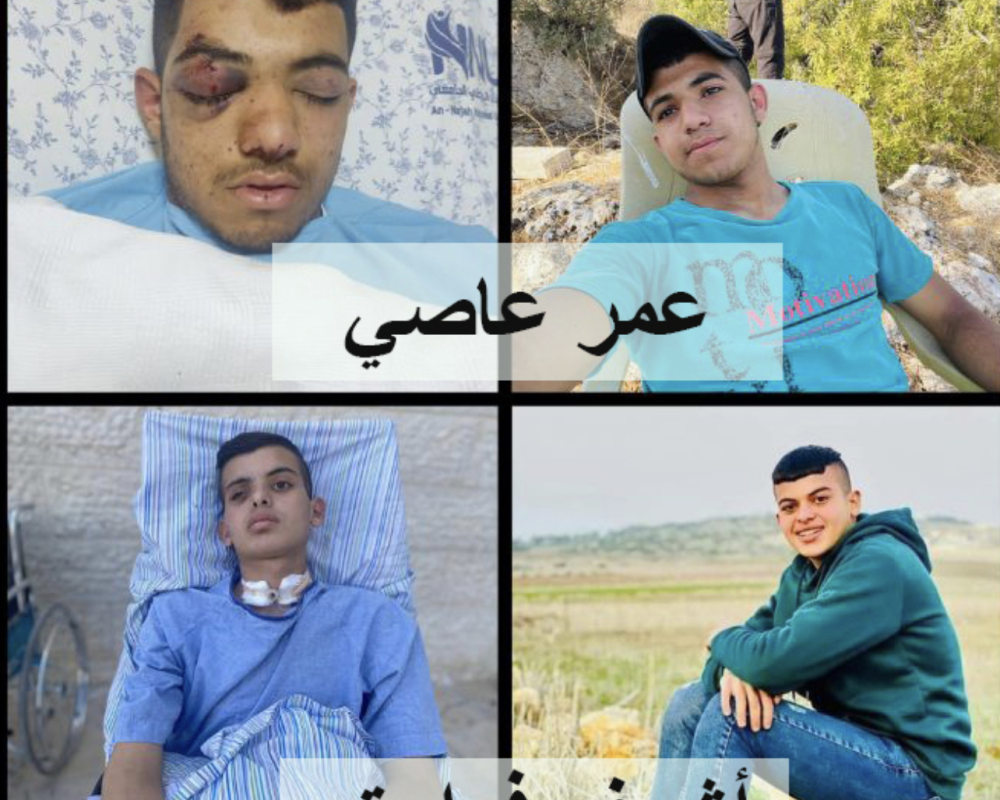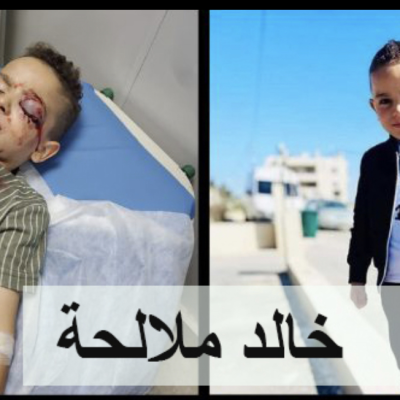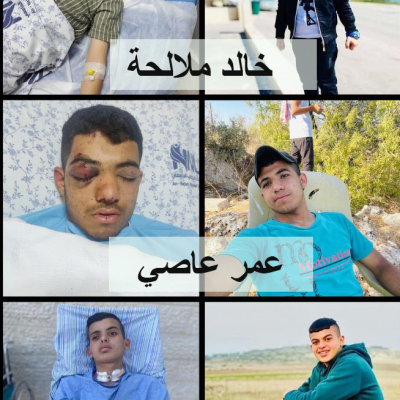
Bethlehem/PNN /
The International Movement for Child Protection has documented three Palestinian children who lost their eyesight since the beginning of this year (2023) due to deliberate targeting by the occupation forces.
In this context, the "International Movement" pointed to the case of five-year-old Khalid Mallaha from the village of Bazaria in the Nablus governorate, who lost vision in his left eye as a result of being hit by Israeli occupation gunfire.
An eyewitness, speaking to the International Movement, reported that Israeli soldiers opened fire at the vehicle carrying young Mallaha and his father on June 23rd last month, while they were at a junction in the village, where confrontations were ongoing at around 6:00 PM that day.

The eyewitness added that the distance between the Israeli soldiers and the vehicle at the time of the shooting was approximately 200 meters, confirming that the vehicle was stationary. The gunshot hit a stone near the vehicle before fragments scattered, with one of them striking the left eye of young Mallaha.
Immediately after the incident, Khalid Mallaha was rushed to a hospital in Nablus by an ambulance that was present at the scene. Medical examinations and imaging later revealed severe damage to his left eye, causing permanent blindness.
Similarly, sixteen-year-old Omar Assi from the town of Kafr Dan, west of Salfit, was injured by shrapnel from a sound bomb fired by Israeli occupation forces on April 24th last month during clashes that erupted in the town. As a result, he lost his vision in his right eye, while his left eye suffered severe damage.

Omar Assi recounted to the International Movement that the clashes broke out after Israeli forces raided the town, firing live ammunition, sound bombs, and tear gas intensively. While taking cover with a group of citizens inside a school, they were besieged by the occupation soldiers who launched gas and sound bombs towards them. One of the sound bombs exploded directly in his face.
"I felt severe pain in my face and lost vision completely in my right eye. I also felt blood streaming from my face. Some of those present carried me and walked about 100 meters away from the soldiers, and then a private vehicle transported me to the entrance of the town, where I was transferred by an ambulance to a hospital in Nablus," Omar Assi said.
"At the hospital, it was revealed that I had a severe hemorrhage in my right eye with some shrapnel, and also in my left eye but to a lesser extent. I underwent surgery to stop the bleeding in my right eye and close it to prevent further inflammation. Currently, I have lost all sight in my right eye, while my vision in the left eye is very weak," he added.
The International Movement also recalled the case of sixteen-year-old Ashraf Mahmoud Farahat from Jenin city, who was shot by Israeli occupation forces during their raid on Abu Bakr Street in the city's downtown on March 16th last year (2023).
Ashraf Farahat was shot in his right eye while he was hiding behind a Palestinian vehicle at the scene. The bullet fragments settled in his brain, and due to the severity of his condition, he was transported to a hospital in Ramallah, where he spent 65 days, including 20 days in intensive care. During this period, medical teams were unable to perform surgery to remove the fragments due to their critical location.
Afterwards, Ashraf Farahat was transferred to the Bethlehem Arab Society for Rehabilitation, as he lost all mobility and now relies on a feeding tube.
His father says that he doesn't know if his son recognizes him or not, as he is unable to move or even express himself through facial expressions.
The International Movement reaffirmed that Israeli occupation soldiers deliberately target Palestinian civilians, including children, from close range and aim at the upper parts of their bodies, with the intention of killing them or causing permanent disabilities. This exploitation of impunity is facilitated by the occupation's policy of evading accountability. These crimes amount to war crimes and crimes against humanity according to the Rome Statute of the International Criminal Court.